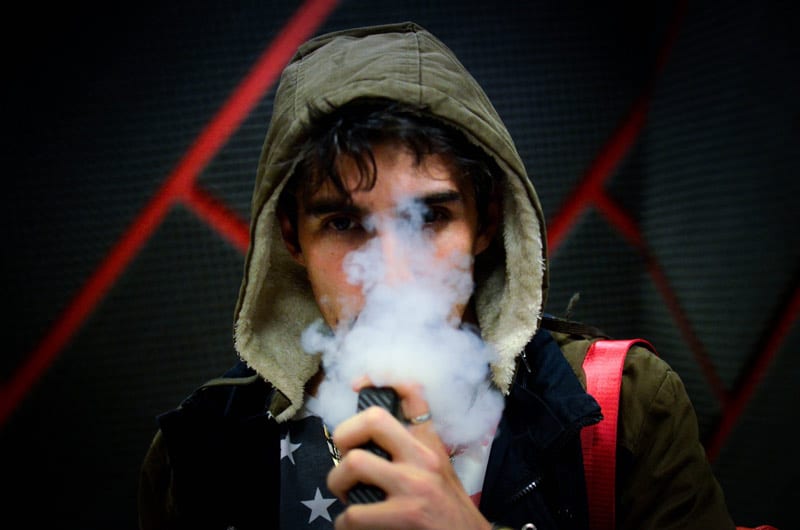During the month of September www.rtor.org will be observing National Recovery Month with a guest blog series on addiction and substance use disorders. For our second article in this series, we are featuring a guest post from Elizabeth Driscoll Jorgensen, owner of Insight Counseling, LLC, in Ridgefield, CT, and Consultant to Family-Endorsed Provider Newport Academy at its Outpatient Treatment Center in Darien, CT.
As a local mental health provider based in Fairfield County, CT, Liz has written the first guest post for our new blog, Close to Home: The Fairfield County Mental Health Blog, which debuted this month. A big thank you to Liz for helping us launch this new service of www.rtor.org and Laurel House, Inc. during National Recovery Month!
In the past three to four years, a higher number of young people have presented at Insight Counseling with paranoia, psychotic thoughts, extreme mood disorders that arrive seemingly overnight. These young people are often extremely agitated or impulsive, or rapidly deteriorate in mood to lethargy and extreme depression. In many cases, we have no choice but to hospitalize these young people to get them stabilized.
The common factor in these cases has been the use of either “Dabs” or strong “edibles” with no other drug use. We, and many other providers nationwide have demonstrated this phenomenon, with urine drug screens proving THC levels in the patients’ system.
High Potency Tetrahydrocannabinol (THC) products. THC is the psychoactive molecule in cannabis and it is found in varying concentrations in the plant form of marijuana as well in progressively higher doses in edible forms and in the most potent product “Dabs” or THC concentrate.
What are Dabs? Dabs, also called ‘wax’ or ‘carts,’ refer to a paste created by drug dealers by adding butane to kilos of plant marijuana, mixing it in industrial mixers and extracting the “pure” THC molecules. Dabs are 70-90% THC and full of solvents as well. They have a dramatic effect on brain chemistry and the body in a very strong, rapid, and often dangerous way. Many teens do not even know what they are smoking the first time they smoke ‘Dabs” and may feel overwhelmed by being “too high,” unable to move or function for hours. Still others will initially enjoy the intense ‘high’ but then experience severe psychiatric symptoms often resulting in high risk behaviors.
EXAMPLES:
A sweet young man jumped off a college roof and was “saved” by an air conditioning unit after he had psychotic thoughts from a relatively small amount of ‘Dabs’. When he was rescued and came to, he described thinking his clothing was on fire and that he needed to jump. It took three weeks of antipsychotic therapy before he was fully back to normal.
Another smart and vibrant young woman had strong impulses to hurt herself and perhaps kill herself using odd and violent means after smoking what she thought was a nicotine filled Vape device. She began hyperventilating and screaming and was seen at the local hospital. Almost 36 hours later she was much better, but now needs regular care and medication.
A 20-year-old man, no family history of mood disorders and no past history of depression, anxiety or hypomania suddenly exhibits the symptoms of full-blown mania, driving 100 MPH, talking nonstop, pressured thoughts, akathisia, delusional thinking, and hypersexuality. He tells his therapist ‘This is the best I have ever felt, but I know I am insane as well. ” The only immediate precursor? High potency THC ‘Dabs’ “Several times per day.” The young man needed hospitalization and is still experiencing substance induced mania, 12 days after treatment began.
In my work speaking around the country in the Newport Academy Day Conferences for professionals, we are hearing clinicians, emergency room physicians and parents everywhere describing this new and very worrisome phenomena of “Dab” induced psychosis and mood disorders. We know one of the causes of these extreme symptoms are the high-level THC products available to young people.
Although the use of ‘Dabs’ and wax are causing many of these acute situations, the use of ‘edibles’ that ARE LEGAL in the states that allow retail cannabis sales are also causing major psychiatric issues. The candies, cookies and other products if not eaten in the recommended doses will give the same overwhelming dose of THC to the nervous system.
Most teens will not eat the recommended ‘one gummy bear’ dose of edible THC and after three doses taken innocently, they are having similar reactions to what I described above. The extreme psychiatric symptoms are what we call “dose related” to THC levels.
WHAT CAN WE DO?
What can parents and professional do? We must very actively educate young teens to the real facts regarding the high potential for both addiction and adverse psychiatric symptoms related to these high-dose THC products.
Parents also have to firm up their ‘no use’ messages to teens, as many parents are feeling they are not able to impact their children’s use of weed at all. Research consistently demonstrates that parents’ strong, firm but caring disapproval of any risky behavior has a major impact on teens’ actions. It is particularly daunting now as it appears our culture is accepting weed as ‘normal’ and the latest fantasy cure to medical and financial woes. No use of cannabis at all is safe for developing teen brains. To have a strong influence, parents must speak in terms that are caring, knowledgeable and firm to their tweens and teens and describe the science behind the negative short and long-term effects of high potency THC products.
If your child is receiving psychiatric care for any extreme symptoms, please make sure he or she is lab tested for THC as well. Many mental health practitioners are not yet fully aware of the impact and prevalence of high potency THC products on psychiatric illnesses. Many of our clients have a remarkable improvement in symptoms simply by becoming abstinent from cannabis and other drugs. Your child may be greatly helped by dual diagnosis care that addresses the use of drugs in the role of psychiatric symptoms.
I have found that young people themselves, when given the data in a reasoned and careful manner agree that high potency THC products have caused them unwanted symptoms, from the simple “I just got way too high” to “I couldn’t stop my thoughts.” When I speak at schools (a non- clinical population) many teens come up to me afterwards, very concerned about the data on “Dabs” and willing to make changes. Parents, speak to your children. Even when they may not have the extreme reactions described above, they do see the risk of high potency THC and they will hear you!
A 17-year-old boy in our practice recently told me, “I thought you guys were exaggerating, but I really feel so much better now that I am not dabbing. My thinking was really dark and selfish, and I did not believe it was the Dabs.”
Please send me your questions and concerns: Liz@Insightcounselingllc.com
For more sources of data and talking points try:
- http://insightcounselingllc.com/2018/10/15/the-parent-teen-weed-wars-what-parents-can-do/
- https://teens.drugabuse.gov/blog/post/dabbing-dangerous
- https://drugfree.org/article/how-to-talk-about-marijuana/
- http://powertotheparent.org/be-aware/hidden-in-plain-sight/
If you or someone you know experiences mental health issues, it is important to seek help from a qualified professional. Our Resource Specialist can help you find expert mental health resources to recover in your community. Contact us now for more information on this free service to our users.
Photo by Nery Zarate on Unsplash
The opinions and views expressed in this guest blog do not necessarily reflect those of www.rtor.org or its sponsor, Laurel House, Inc. The author and www.rtor.org have no affiliations with any products or services mentioned in this article or linked to herein.






I’m grateful the helpful information and resources available at this site.